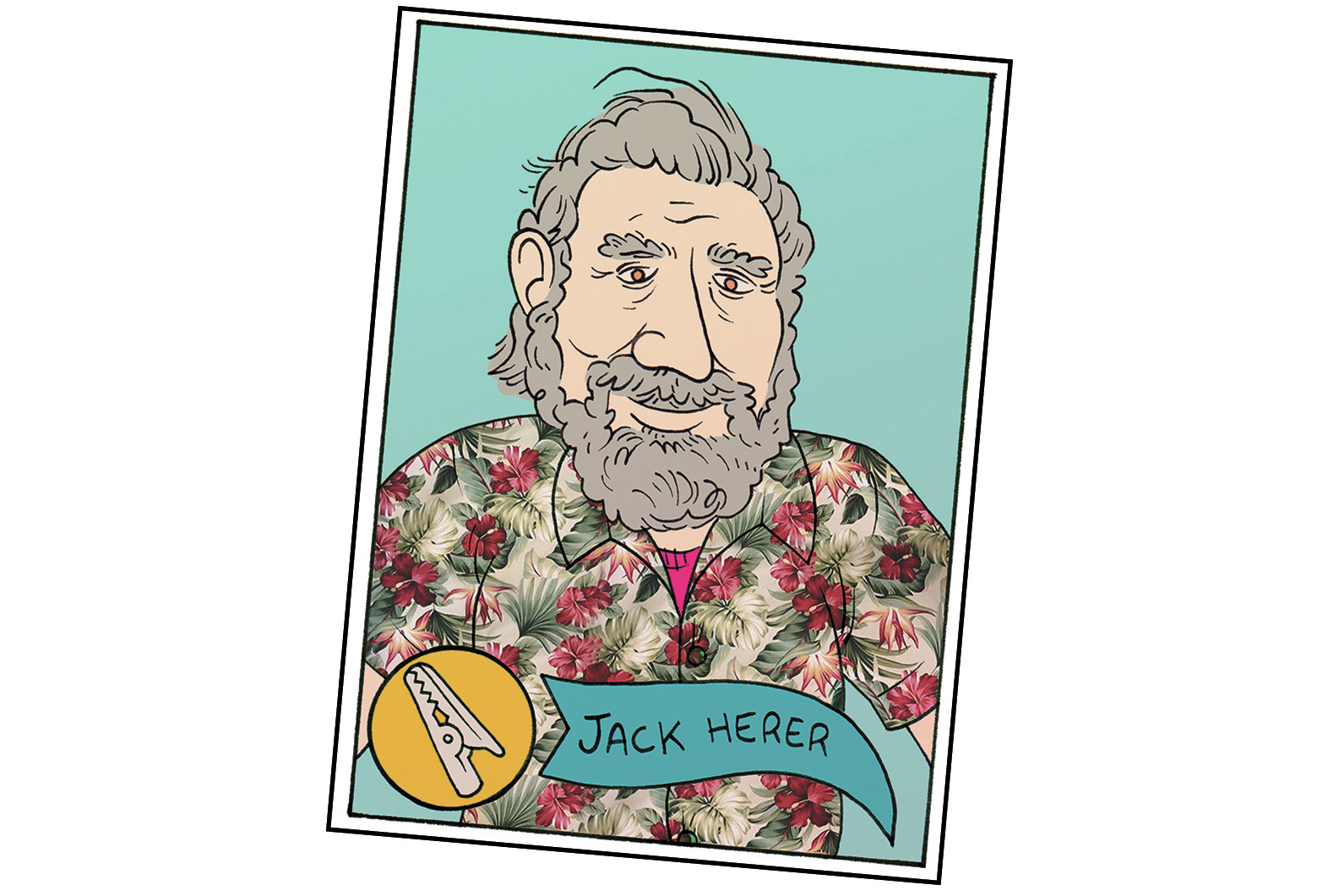Jack Herer started life as a normal Jewish kid. He grew up in New York City, the son of Polish immigrants. He served as a military policeman in the Korean War and was a pro-war Republican, even naming one of his kids after Barry Goldwater. After his service, he got married and became a sign-maker. His bucolic life was disturbed, however, when he discovered that his wife (the first of four) smoked weed. He promptly divorced her and moved to California.
Which is ironic, because upon settling into L.A., he met another woman who really wanted to get him high. The year was 1967, and Herer was 30. According to his biography, “This girl wanted me to experience something I’d never experienced. She tried three times to get me high. Finally it worked, and I had the most incredible sex I’d ever had.”
By 1973, Herer had given up on the sign business and started on a path that would radically alter the marijuana movement. He opened the first head shop on Venice Beach. He sold handmade smoking tools, created a zine called G.R.a.S.S., great revolutionary American standard system: The official guide for assessing the quality of marijuana on the 1 to 10 scale, and began to openly fight for the legalization of hemp and cannabis.
A crucial moment in Herer’s life came in 1983 as he was serving a 14-day jail sentence for not paying a $5 fine he received after registering voters in a parking lot. (Herer was notorious for not giving money to the government; he didn’t pay his taxes for 30 years.) It was during this jail stay that he began to write The Emperor Wears No Clothes, in which he painstakingly points out use after use for hemp and cannabis.
The real power behind a work like TEWNC is that when it was published, sources of information about the dynamic uses of cannabis were scattered. In one volume, Herer brought together details on industrial uses from food to construction, scientific research, medical knowledge, religious usage, and folk wisdom, all while pulling back the curtain on the national and global political intrigue behind the plant’s prohibition. His lengthy survey of the school-to-prison pipeline is worth the read alone. The cannabis group NORML felt the tome was such a vital tool in the fight against prohibition that members would receive a gift copy when they joined the organization.
At the root of Herer’s arguments for legalization was his concern for the environment. Herer felt if he could just convince our government to switch some crucial industries to hemp, we could slow or even stop climate change. The energy industry in particular received much of his attention and ire, as those corporations own many of the petrochemical, pharmaceutical, liquor, and tobacco companies, and are intertwined with insurance companies and banks. He didn’t just believe that this plant save the world, he also contended that it would be great for the economy, pointing back to the “Hemp for Victory” movement during WWII.
Sadly, moments after delivering a rousing speech at Portland’s Hempstalk Festival in 2009, Herer suffered a heart attack (his second in 10 years). He never recovered, and died peacefully in his home with his family by his side in 2010, just shy of seeing his dream of legalization come true.
stashbox@seattleweekly.com








